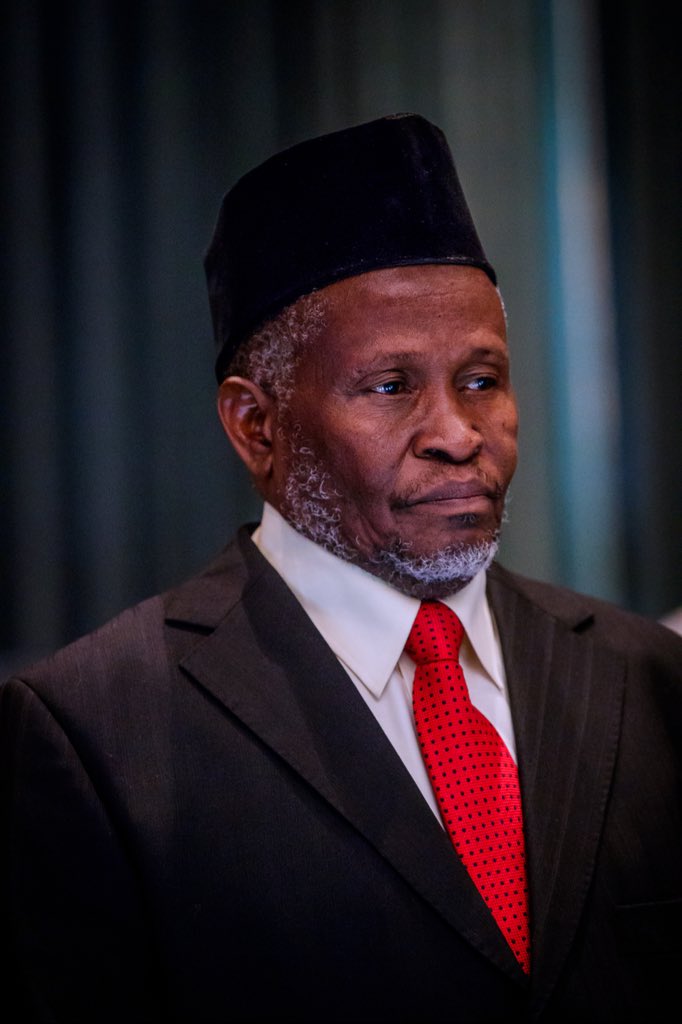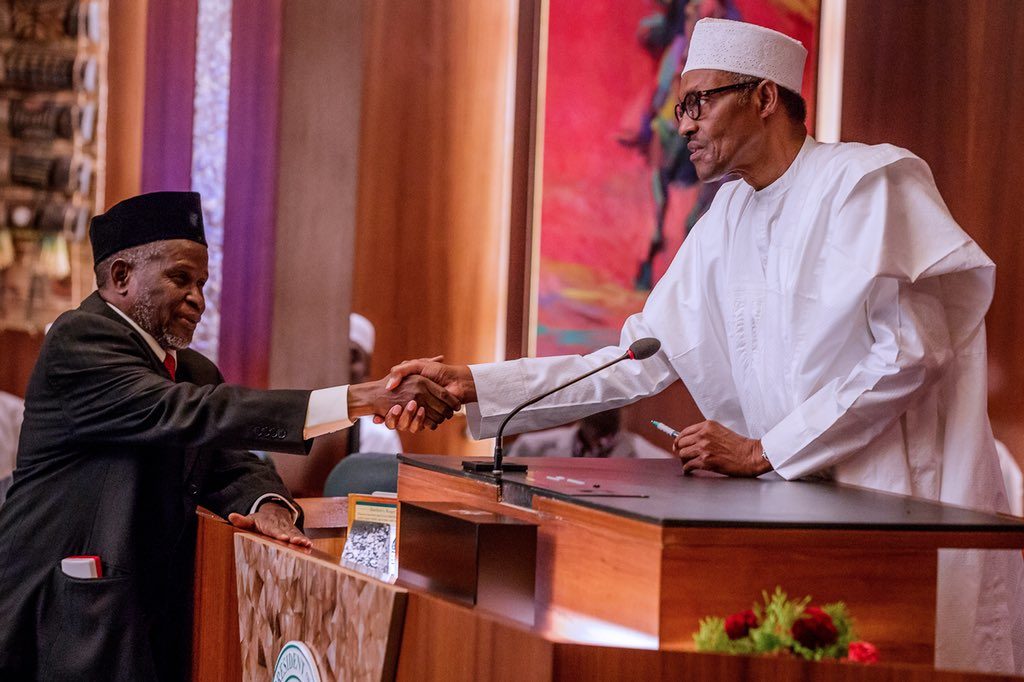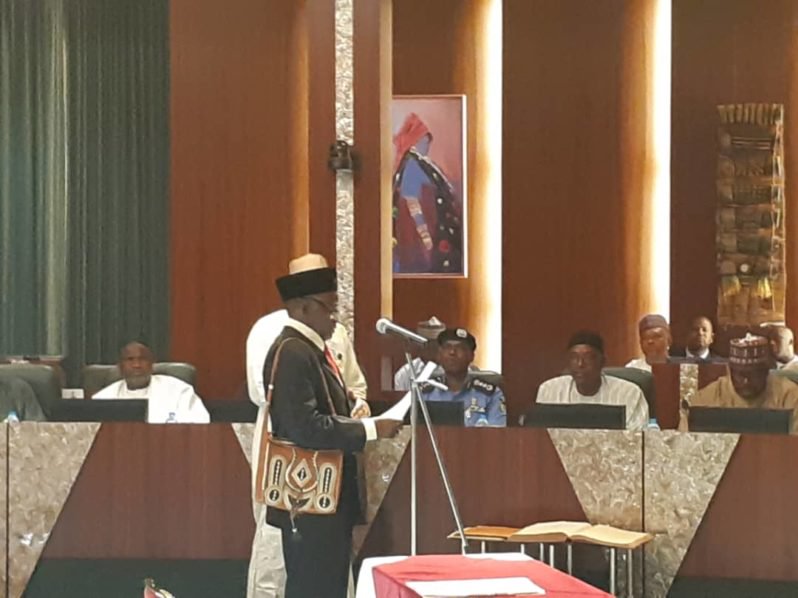President Muhammadu Buhari has suspended the Chief Justice of Nigeira (CJN), Justice Walter Onnoghen, pending the completion of his trial at the Code of Condut Tribunal (CCT). President Buhari announced the suspension at the Council Chamber of the Presidential Villa, Abuja. He said the suspension followed the order of the CCT directing him to suspend Onnoghen, pending the completion of his trial.
The President has swore in Justice Ibrahim Tanko Mohammed as the acting CJN. Mohammed who hails from Bauchi state is the most senior justice of the Supreme Court. The new Chief Justice of Nigeria, Justice Ibrahim Muhammad, will today, swear in members of the National Assembly, governorship and state assembly election petition tribunals.
The Nigerian Bar Association (NBA) reacted to the incident, calling it a coup against the Nigerian Judiciary and disregard for the Nigerian constitution. In a statement by Paul Usoro, Senior Advocate of Nigeria (SAN) President, he said:
- The news media has been awash this evening with the news of the purported suspension of the Chief Justice of Nigeria, Honorable Mr. Justice Walter S C Onnoghen, GCON by President Muhammadu Buhari, GCFR and the swearing in of Hon Justice Ibrahim Tanko Mohammed as the acting Chief Justice of Nigeria. We are told that this was pursuant to an Ex-Parte Order that was issued by the Code of Conduct Tribunal on Wednesday, 23 January 2019.
- The Nigerian Bar Association unequivocally rejects and condemns this attempted coup against the Nigerian Judiciary and evident suspension of the Nigerian Constitution by the Executive arm of the Federal Government. The action of the Executive portends a slide into anarchy and complete deconstruction of the Rule of Law and due process. It amounts to an absolute breach of the Constitution and the usurpation of the powers of the Senate and the National Judicial Council.
- It is unfortunate that the Executive Branch of Government purports to suspend the CJN on the basis of an alleged ex-parte order of the Code of Conduct Tribunal – the same Tribunal that, to the knowledge of the Executive, had, only the previous day, Tuesday, 22 January 2019 adjourned its proceedings to Monday, 28 January 2019 and has before it a Motion on Notice that is yet to be argued, seeking the same reliefs as were contained in the purported ex-parte application, to wit, the suspension of the CJN, amongst others.
- We call on the Federal Government to avert the looming constitutional crisis precipitated by its ill-advised action. In particular, the Nigerian Bar Association demands the reversal of the purported suspension of Honorable Mr. Justice Walter S C Onnoghen, GCON. We also call on the National Assembly to assert its constitutional authority and powers and prevent this slide into chaos and erosion of the Rule of Law.
In Section 292 of the Nigerian constitution, it states thus:
(1) A judicial officer shall not be removed from his office or appointment before his age of retirement except in the following circumstances:-
(a) in the case of:-
(i) Chief Justice of Nigeria, President of the Court of Appeal, Chief of Judge of the Federal High Court, Chief Judge of the High Court of the Federal Capital Territory, Abuja, Grand Kadi of the Sharia Abuja and President, Customary Court of Appeal of the Federal Capital Territory, Abuja, by the President acting on an address supported by two-thirds majority of the Senate.
(ii) Chief Judge of a State, Grand Kadi of a Sharia Court of Appeal or President of a Customary Court of Appeal of a State, by the Governor acting on an address supported by two-thirds majority of the House of Assembly of the State. Praying that he be so removed for his inability to discharge the functions of his office or appointment (whether arising from infirmity of mind or of body) or for misconduct or contravention of the Code of Conduct;
(b) in any case, other than those to which paragraph (a) of this subsection applies, by the President or, as the case may be, the Governor acting on the recommendation of the National Judicial Council that the judicial officer be so removed for his inability to discharge the functions of his office or appointment (whether arising from infirmity of mind or of body) or for misconduct or contravention of the Code of Conduct.
BY ONYEDIKA CHUKWUELOBE



